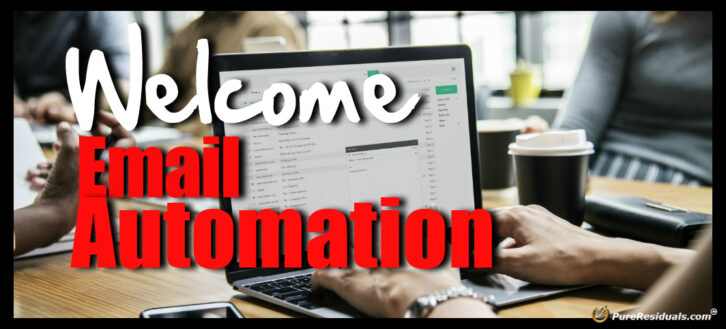How important is a welcome email really when it comes to email advertising? It may feel like an extra step that is a bit hit or miss in terms of necessity, but the reality is actually quite surprising. Even though it seems like a pointless step, the right welcome email can actually be effective in creating lasting, loyal customers in a way that costs virtually nothing on your part.
Where does a welcome email campaign actually get used? Typically, if you have some kind of subscription or membership service, a welcome email is sent out to “welcome” them to the party. The range of welcome emails is expansive. Some are simple confirmations that the signup is complete. Others are elaborate messages designed to promote further action or conversion.
In short, it is never a bad idea to have a welcome email if you have this type of service or any other way people can sign up as a member. While it is a safe bet to have this message, one area that people often struggle with is knowing whether to use an automated message or not. Having to reply to every single signup by hand can be difficult and time-consuming, so the idea of automation is attractive from the start. But is it the best approach?
To help you with your email campaigns and to determine if you should be using welcome email automation, here are some of the pros and cons of this strategy.
It Saves Time
It is not difficult to see where the major benefit of welcome email automation really comes in. Just like anything else that can run automatically, a welcome email that is sent off on its own does not require any time or effort on your part. This means you can attend to other things after you have crafted the actual welcome message and have hit the “run” button.
Automated welcome emails usually work through online software supplied by a web host or dedicated messaging service. Because of this, you do not even have to waste your time installing and learning new software if you do not want to. Instead, these services typically make the process easy to craft a new message and send it on its way.
It Offers More Consistency
Let’s face it, not everyone can be a prolific writer 24/7. Even the best copywriters have their off days. If you have experienced the need to communicate to customers on a daily basis, you have probably learned that consistency is difficult when it comes to written communication. The benefit of an automated message is you only need to be good once. After that, the message will be sent to fresh eyes each time without any possibility of “being off.”
If you have hired someone else to do the writing for you, this can also help you save money while maintaining consistency. Writing a single message will always be less expensive than hiring someone to maintain that part of your customer communication. This will also give you time to consider the exact details of the message. What do you want to achieve? What is the tone? How should it sound to the reader?
Best of all, many of the online automated platforms allow you to customize the message with little details. You can change basic information like the recipient’s name or get more advanced with things like changing promotions and news. Much of these placeholders are automated as well, so you can set the program to change once and then forget about it later on.
There Is Less Personalization
Despite the convenience that automated welcome messages offer, there are drawbacks that make it unsuitable for certain businesses and situations. More than anything else, because it is automated, the welcome message will lose a sense of personalization. Even with the customization many services offer, there is no substitute for a genuine personalized email or message.
Readers are often good about telling whether a message is genuine or just an automated script. Quite often, the tone and content of the message is broader than something personalized would be. The lack of specific details other than the basics like a name are also a good giveaway. Even when you have a lot of customization, it can be easy to tell when placeholders are being used instead of the real deal.
What is the harm of this? It depends on the audience. Some readers are okay with automated scripts. They may even come to expect this type of content. Readers looking for a personal connection with a business, however, are less likely to be impressed. More importantly, they are also less likely to connect with the business. This can be harmful if you are wanting to build a positive relationship with your customers based on a more personal connection.
Choosing to Automate or Not
There is no concrete answer when it comes to whether you should or should not use automated welcome messages. It depends on your business, your customers and what you hope to achieve with the welcome message in the first place. Depending on these things, combined with the variety of possibility with automation, you will begin to see whether automation is appropriate or potentially effective for you or not.
The size of your business and customer base will be the most important thing to consider. If this welcome message is for a membership group or subscription list, the size of these things is important as well. In all cases, the smaller the business and number of people, the more personal things should be. The advantage of having a small presence and audience is you can take the time to personalize your welcome to any newcomer without resorting to a script.
If you have a large audience, however, it may be time to automate. Unless you have employees or the time to personalize these messages, you may find efforts to be overwhelming without automation. If this is the case, be sure you customize the message as much as possible, so you can retain the convenience and personalization a good welcome message can create. More than anything else, do not rely on just a single message without updating and customizing it.
About the Author






